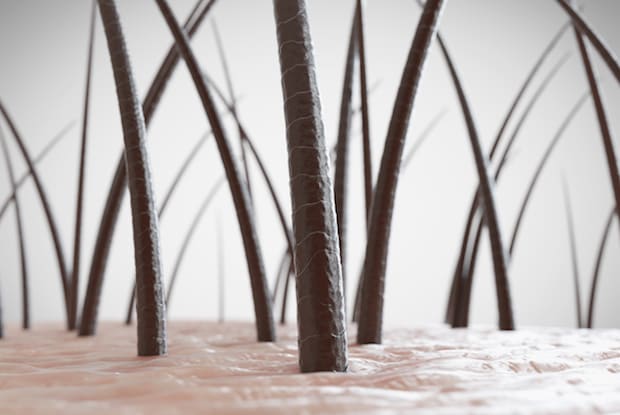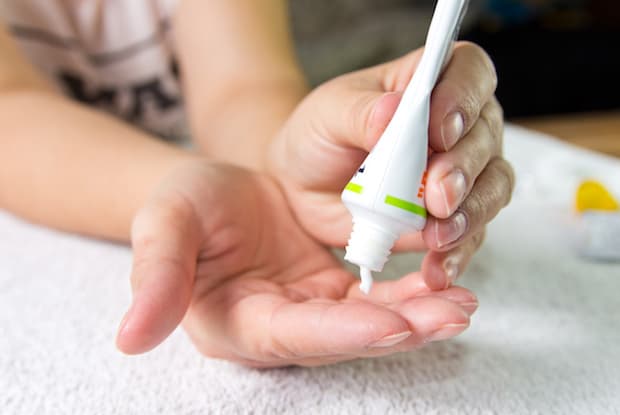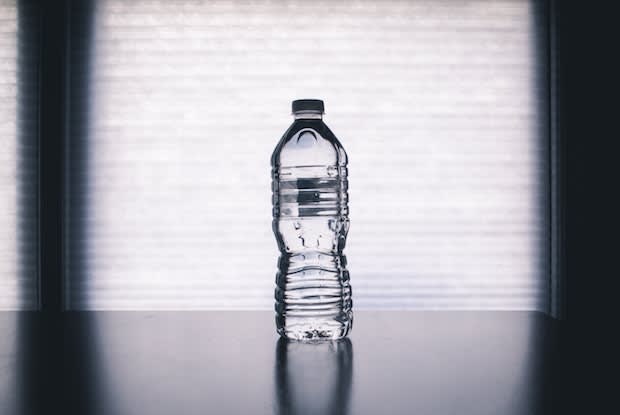Table of Contents
b. Try Non-Medication Treatments
What is Acne?
Acne is a skin condition that causes pimples and other skin blemishes. Acne affects more than 80 percent of people at least once and usually occurs between the ages of 12 and 24. [1] Acne lesions are typically found on the face but can also be found on other body parts, including the shoulders, neck, and back. [2]
Acne most often affects adolescents but people of any age can suffer from this condition. In young people, acne is more common in males. However, it is more likely to affect female adults. Acne can cause physical pain as well as emotional stress, especially when the condition is severe. Keep reading to learn about what causes acne and what you can do to get rid of this condition.
What Causes Acne?
There are several different causes of acne. For most patients, acne is caused by a mixture of factors, although there may be one more dominant cause. It is important to know the causes of acne as this can affect the appropriate treatment.
Almost all skin pores contain the opening to a follicle. These follicles contain a single hair and a sebaceous oil gland, which releases sebum oil. Sebum oil keeps skin feeling soft, but when there is a problem with the skin pore or the follicles, then acne can occur.

There are three main causes of acne:
- Pores being clogged
- Bacteria building up in the pores.
- The sebaceous oil gland producing an excess amount of sebum oil. [3]
a. Clogged Pores
Having clogged pores is a common cause of acne. Pores are often clogged by dead skin cells. Your skin cells are constantly growing and try to ‘push’ their way to become the top layer of skin. The top layer of skin can become weathered through daily activities. It will eventually break away from the rest of the skin. [4] Dead skin cells can become stuck in sebum oil on the skin, blocking pores. Pores may also be clogged by sweat, air toxins, and certain cosmetics.
b. Excess Oil Production
As previously mentioned, your follicles contain an oil gland that releases sebum oil onto the skin. Sebum oil keeps your skin soft, but excess oil can cause a plug of oil to form. This can then cause or worsen acne. Hormones, including testosterone, can increase the amount of sebum that the follicles produce. Acne is more common in teenagers and young adults, as puberty can cause a surge of hormones.
c. Build-up of Bacteria
Bacteria build-up is another cause of acne, although it is unlikely that this will be the cause of the initial outbreak. Bacteria is a key cause of whiteheads and blackheads. These types of spots are the most common form of acne. Bacteria grows when the opening to follicles become clogged.
Acne Medications
There are several different medications available to treat and prevent acne. These include over-the-counter treatments for mild acne and prescription medications for moderate and severe forms of the condition. Most acne medications fall into two categories; topical medications and oral medications.

a. Topical medications
Many acne treatments are topical medications, including gels, creams, and lotions. These medications are applied directly to the affected area and the area around. Popular topical medications include Tazorac (tazarotene), Azelex (azelaic acid), and Retin-A (tretinoin). These medications are often available in different forms so that you can choose which is most convenient for you.
Topical medications often take four to eight weeks before you begin to notice improvements and may take several months to completely clear acne. If you do not notice any improvement after eight weeks, it may be worth speaking to your doctor about changing your medication.
These medications work to lessen the frequency and severity of future outbreaks by fighting bacterial infections, increasing cell growth, and reducing the amount of oil produced by follicles. [5]
b. Oral Medications
Oral acne medications are often prescribed if topical medications have not been successful in treating acne. Oral medications treat acne after being absorbed through the body. Often, oral acne medications are either antibiotics or birth control medications.
Antibiotics such as tetracycline may be prescribed for more severe acne, especially acne caused by a build-up of bacteria. When taking antibiotics to treat acne, the medication should be taken for a short length of time to prevent your body from developing a resistance to the drug. [5]
At-Home Treatments
a. Washing Your Face
Along with medications, lifestyle changes may also improve acne. As mentioned, one of the major causes of acne is skin pores being clogged by dead skin cells or other dirt. Many people believe that it is beneficial to wash their face multiple times a day to prevent pores from becoming clogged. However, violent or too frequent washing can cause irritation and dryness. Research suggests that acne patients should wash their face with a mild soap or cleanser and then gently pat dry. This should be done in the morning, evening, and after any activity that has caused sweating [6].

b. Try Non-Medication Treatments
Some non-medication treatments may also benefit acne-sufferers. Many natural products are antibacterial and inflammatory. These treatments can reduce the severity of acne when applied directly to the affected area. Common anti-inflammatories include aloe vera and tea tree oil. [7]
c. Hydration
Drinking more water is a great way to improve the appearance of skin. Drinking between six and eight full glasses of water every day can help reduce the risk of acne outbreaks and can help new skin cells to grow.
d. Use the Correct Cosmetics
Wearing make-up or cosmetics is usually fine for people with mild to moderate acne. However, there are some conditions to this. It is important to always remove make-up before you go to bed, either by washing your face or with a make-up removal wipe. Acne patients should also make sure to use make-up that is non-comedogenic and non-acnegenic. This will prevent make-up from clogging pores, worsening acne.
People with acne should not share their make-up with anyone else. Dead skin cells, oil, and bacteria may all be transferred through make-up brushes and applicators. While acne is not contagious, this transfer may worsen the acne of another person. [6]
The content in this article is intended for informational purposes only. This website does not provide medical advice. In all circumstances, you should always seek the advice of your physician and/or other qualified health professionals(s) for drug, medical condition, or treatment advice. The content provided on this website is not a substitute for professional medical advice, diagnosis or treatment.
